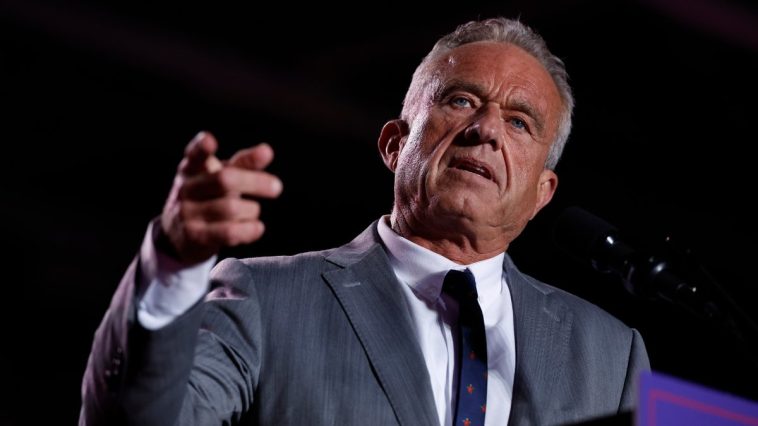There has been widespread criticism following the nomination of an outspoken critic of vaccines to lead the most eminent healthcare agency in the country. Trump’s choice of nominee sparked ire in the media and trepidation amongst medical professionals, who typically don’t identify with any particular political stance. Among the points of contention are Kennedy’s controversial views on a variety of subjects, such as vaccination, raw milk consumption, fluoride use for dental health, and his statements about food oils and general food safety.
Kennedy’s perspectives oftentimes contradict the established scientific consensus on health and food safety issues. However, it’s worth noting that some of his beliefs, especially those related to obesity, preservatives in food, and high sugar content in meals, bring up valid concerns and warrant public attention. Prior to the senators casting their votes on his nomination, it is imperative that Kennedy be given an unbiased platform to disclose and debate his viewpoints.
Market analysts erred in their hasty assumption that Kennedy as secretary of HHS would have a detrimental effect on the healthcare industry. Kennedy’s role, if approved, does not entail direct influence over the sanctioning or rejection of new drugs. The responsibility of making these decisions would continue to reside with medical professionals who base their conclusions on scientific evidence, rather than unfounded prejudice.
The principal function of the secretary of HHS is to ensure the enforcement of laws—they do not create legislations concerning drug prices, authorizations for drugs and vaccines, or oversee the entire gamut of healthcare. If approved, Kennedy will be assuming the role of an administrator rather than a supreme healthcare authority or czar.
The announcement of Kennedy’s nomination led to a downward trend in the stock market values of companies in the biotech and pharmaceutical sectors. Investors reacted prematurely to the news without carefully evaluating the likelihood of the Senate rejecting Kennedy’s nomination. Furthermore, it’s crucial to understand that Kennedy alone, would not be in a position to impede the ongoing advances in medication and life-saving vaccinations.
With the advent and integration of pioneering technologies like artificial intelligence in the field of healthcare, we stand on the precipice of an era of unprecedented medical breakthroughs. A future where more types of cancer are vanquished by vaccines is not far off. Additionally, personalized treatments harnessing messenger RNA technology will also be increasingly available and optimized.
Further innovations in the use of targeted radiation and chemical treatments will enhance their effectiveness against various cancers. In sum, the future trajectory of the healthcare industry is overwhelmingly positive. This is notably vital as the country grapples with the demands of its growing elderly demographic.
The recent downturn in the healthcare sector’s equity market presents an investment opportunity, irrespective of the final decision on Kennedy’s appointment. It’s crucial to contradict Kennedy’s erroneous views on vaccines—the monumental importance of vaccines in modern healthcare cannot be overstated. The development and global distribution of COVID-19 vaccines illuminated the power of modern medicine and capitalism in saving lives.
Historically, we’ve witnessed the large-scale control and eradication of fatal diseases such as smallpox, polio, mumps, and measles, primarily due to extensive vaccination programs. However, there are areas where Kennedy shines a necessary light, in particular, his emphasis on the raging obesity epidemic in the U.S., which comes at a staggering cost to the nation’s economy every year.
His commentary on food additives, including the use of food dyes, is noteworthy. The conversation around these topics requires amplification, as several food dyes indexed in the U.S. have been banned in parts of Western Europe. As this conversation gathers momentum, the public needs to be tuned in to hear Kennedy’s viewpoints.
Lastly, it’s essential to put faith in the democratic process. Encouraging the Senate to have an open dialogue with Kennedy will aid them in determining whether the potential benefits of his progressive ideas notably exceed his opinions that directly contradict established scientific facts.


